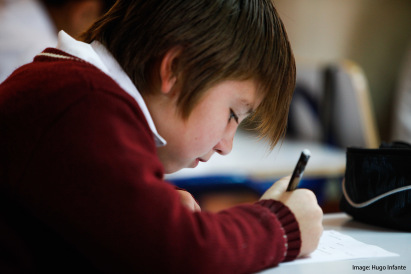2021 GEM Report on non-state actors in education
INEE and the Global Education Monitoring (GEM) Report were pleased to host a…
Virtual Consultation on the 2021 GEM Report
on non-state actors in education
Wednesday, 25 March 2020, 15:00-16:30 CET (Paris)
Virtual Consultation Recording and Presentation
 Few topics in education generate as much passion as the role of non-state actors. While everyone wants to achieve the goal of providing quality education for all, who delivers it, who is engaged, and how they are engaged is a subject of much debate.
Few topics in education generate as much passion as the role of non-state actors. While everyone wants to achieve the goal of providing quality education for all, who delivers it, who is engaged, and how they are engaged is a subject of much debate.
Non-state activity in education has a variety of motivations, from charity to profit. Activities may or may not involve collaboration with the government, debate abounds as to whether the role of non-state actors should be encouraged or contained. Public opinion on non-state actors displays generational shifts that vary between countries.
Aligned with the 2021 GEM Report concept note, and as part of the ongoing online consultation process, INEE is teaming up with the GEM Report to conduct a virtual consultation to discuss the specific implications of non-state actors in education in emergencies.
During the consultation, GEM Report’s Senior Analyst Dr. Priyadarshani Joshi will give an overview of the 2021 GEM Report, and then lead us in a discussion around a series of questions specific to the education in emergencies sector.
This consultation will be conducted in English and all are welcome to join. We are currently in the planning stages of repeating this webinar in other languages, possibly Arabic, French, Portuguese, and Spanish.
Registration is free and easy using the link above. Once you register, a unique join URL will be sent to your email.
If you have any questions about the webinar, contact [email protected].
Key Questions for the virtual discussion:
- What are the challenges for education in fragile/weak states?
- Is there a role for non-state actors in crisis-affected and fragile states?
- What are the parameters for regulation and accountability of state and private sector actors in education in crisis-affected contexts?
- Should global and national funding be utilized to support non-state actors in conflict-affected contexts?
- How can we ensure that private provision strengthens rather than supplants public education?
- What lessons can be drawn from countries where the private sector has worked to improve educational quality and access, including Lebanon, Syria, Turkey and Jordan?



